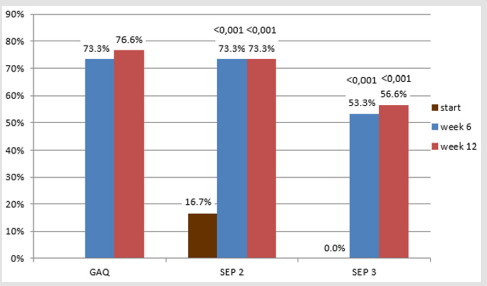wilheminawatte
About wilheminawatte
The Impression of Synthetic Intelligence On Modern Society
The rapid development of synthetic intelligence (AI) has sparked a profound transformation across numerous sectors of trendy society. From healthcare to schooling, and from transportation to leisure, AI applied sciences are reshaping how we dwell, work, and interact with each other. This text explores the multifaceted affect of AI on contemporary life, analyzing each the benefits and challenges it presents.
At the heart of the AI revolution is the flexibility of machines to process vast amounts of information and be taught from it. Machine learning, a subset of AI, enables techniques to improve their performance over time with out being explicitly programmed. This capability has led to significant breakthroughs in numerous fields. For instance, in healthcare, AI algorithms at the moment are able to analyzing medical images with outstanding accuracy, helping radiologists in diagnosing circumstances similar to cancer at earlier levels than ever before. AI-pushed predictive analytics may establish patients vulnerable to developing sure diseases, permitting for well timed interventions that may save lives.

In training, AI is reworking the learning expertise by personalizing training to satisfy the wants of particular person college students. Intelligent tutoring programs can adapt to a student’s learning pace, offering custom-made sources and suggestions. This individualized strategy not solely enhances scholar engagement but also helps educators establish areas where students could also be struggling, enabling targeted support. Furthermore, AI can automate administrative tasks, allowing teachers to focus more on instruction and fewer on paperwork.
The transportation sector has also seen a major impact from AI, notably with the event of autonomous vehicles. Self-driving vehicles, powered by AI algorithms, have the potential to cut back visitors accidents brought on by human error, decrease congestion, and decrease emissions. Ride-sharing companies leverage AI to optimize routes and match drivers with passengers effectively, enhancing the overall transportation experience. As cities proceed to develop, the combination of AI in public transport programs can result in smarter, more environment friendly city mobility options.
Within the realm of leisure, AI is revolutionizing content material creation and consumption. Streaming platforms use AI algorithms to research viewer preferences and suggest personalized content, enhancing person satisfaction. In case you adored this post and you desire to be given more information concerning what is the best erectile dysfunction treatment i implore you to pay a visit to the web site. Moreover, AI is being employed within the production of movies and music, where it might generate scripts, compose music, and even create visible results. This raises intriguing questions about the character of creativity and the position of human artists in an increasingly automated business.
Regardless of the myriad benefits of AI, there are vital challenges and ethical issues that society should address. Certainly one of the primary concerns is the potential for job displacement as AI programs develop into able to performing tasks traditionally finished by humans. While AI can improve productiveness and create new job alternatives, it might also result in vital workforce disruptions, significantly in industries reliant on routine tasks. Policymakers, educators, and enterprise leaders should collaborate to develop methods for reskilling and upskilling employees to adapt to the altering job panorama.
One other urgent challenge is the ethical implications of AI choice-making. As AI systems are increasingly used in vital areas similar to criminal justice, hiring, and lending, there’s a risk of bias in algorithms that may perpetuate current inequalities. Making certain that AI techniques are clear, truthful, and accountable is essential to keep up public belief. This necessitates the institution of robust moral guidelines and regulatory frameworks that govern AI growth and deployment.
Privacy concerns additionally loom large in the AI landscape. The collection and analysis of personal knowledge are basic to many AI functions, elevating questions about consent and the potential for misuse. Putting a balance between innovation and individual privacy rights is essential. Organizations should prioritize information safety and implement measures to safeguard user data while leveraging AI capabilities.
Furthermore, the worldwide nature of AI improvement presents challenges when it comes to governance and regulation. Completely different nations have various requirements and approaches to AI, leading to a fragmented panorama that complicates international collaboration. Establishing world norms and standards for AI is important to ensure that its advantages are shared equitably and that dangers are managed successfully.
As we navigate the complexities of an AI-pushed world, it’s important to foster a culture of interdisciplinary collaboration. Participating experts from diverse fields—such as computer science, ethics, sociology, and law—can provide invaluable insights into the multifaceted implications of AI. Public discourse and education on AI technologies are additionally important to empower individuals to understand and have interaction with these developments critically.
In conclusion, artificial intelligence is undoubtedly probably the most transformative forces of our time, with the potential to boost varied aspects of fashionable society. Its affect on healthcare, training, transportation, and leisure is profound, offering alternatives for innovation and improved quality of life. Nevertheless, as we embrace the prospects of AI, we must additionally confront the challenges it presents. By prioritizing ethical considerations, fostering collaboration, and promoting responsible use, we will harness the ability of AI to create a future that benefits all members of society. The journey forward will require vigilance, adaptability, and a commitment to making certain that AI serves as a pressure for good in our rapidly changing world.
No listing found.

